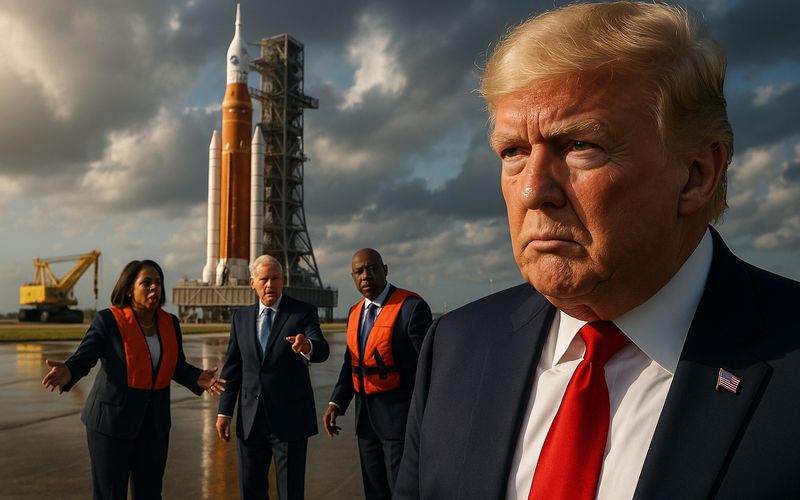President Donald Trump wants to cut NASA's budget by 24%, but senators on both sides of the aisle claim that would have devastating consequences on the agency's ability to advance vital scientific research, Bloomberg reported.
In addition, the president is seeking to slash NASA's science portfolio funding "nearly in half" while canceling "dozens of science missions," the report stated.
But during an appropriations committee hearing this week, Republicans and Democrats alike dismissed Trump's cuts, and proposed their own $24.9 billion budget for 2026, which is "roughly" the same amount NASA received for 2025.
Sen. Chris Van Hollen (D-MD) told Bloomberg, "We rejected cuts that would have devastated NASA science by 47% and would have terminated 55 operating and planned missions." Instead, he said, "we provide $7.3 billion" to fund those measures.
"Senators also rejected the Trump administration’s call to cancel NASA’s giant Space Launch System (SLS) rocket and Orion crew capsule, the centerpieces of the Artemis program to return humans to the moon," according to the report.
These proposed cancellations seem at odds with Trump's first-term moonshot goal where he directed "NASA to land humans on the moon within five years 'by any means necessary.'”
Now, in his desire to cut government "waste, fraud, and abuse," Trump's proposed budget is all for phasing out “the grossly expensive and delayed” SLS and Orion programs "after their third flights." But Sen. Ted Cruz (R-TX) made a provision in Trump's "big, beautiful" tax bill to provide an extra $4.1 billion so SLS could be used up through its fourth and fifth flights.
Sen. Jerry Moran (R-KS) said the bipartisan bill "reflects an ambitious approach to space exploration, prioritizing the agency’s flagship program, Artemis, and rejecting premature termination of systems like SLS and Orion before commercial replacements are ready."
On Wednesday, Trump announced that he was appointing Transportation Secretary Sean Duffy, a former Fox News host, to serve as Interim Administrator of NASA."
Read the full Bloomberg story here.











